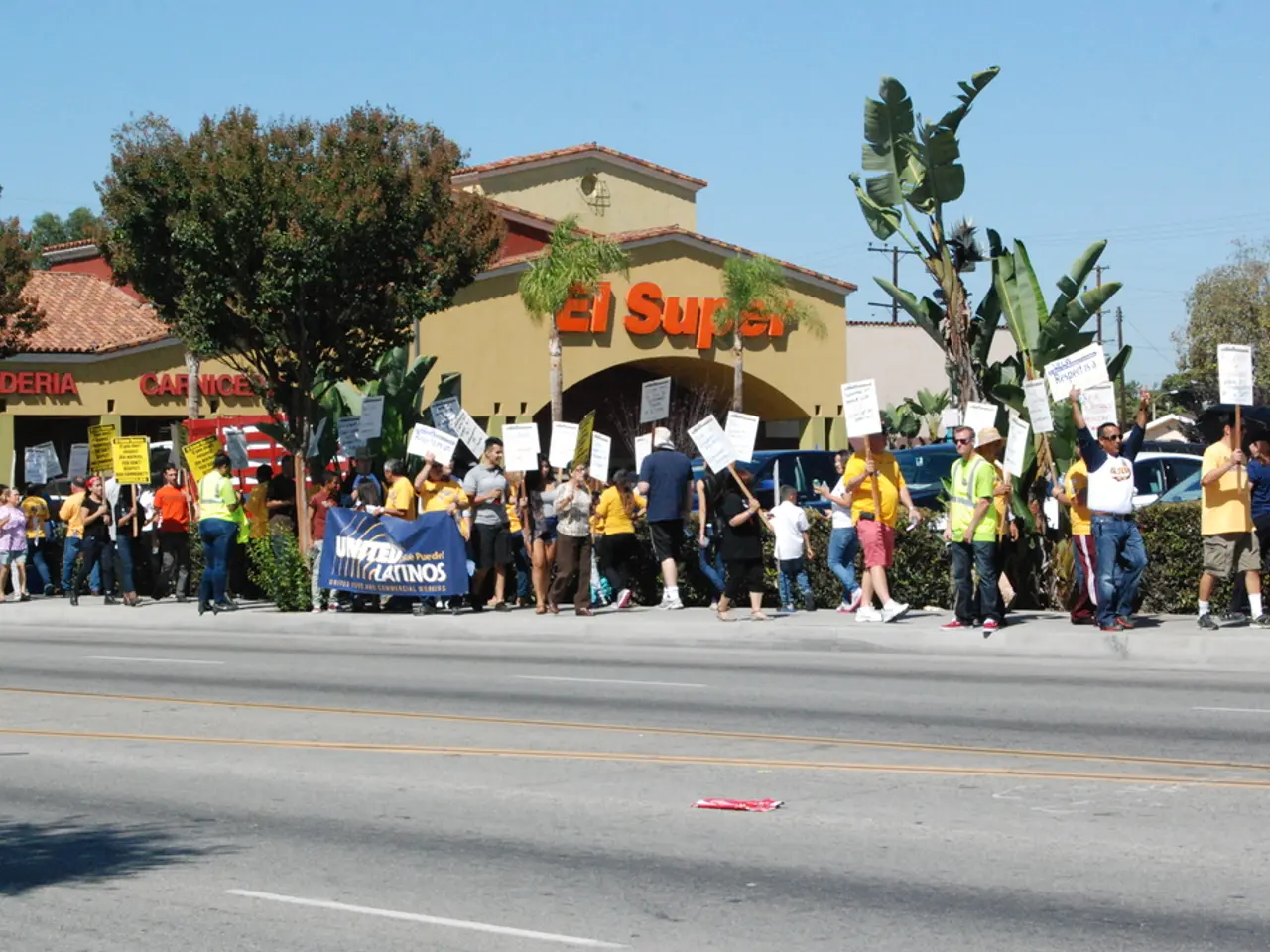Wealthy taxpayers potentially face higher tax rates, as per SPD leader Klingbeil's proposals for fiscal reform.
In a recent ZDF summer interview, German Federal Finance Minister and SPD leader Lars Klingbeil outlined a plan to address a projected €30 billion budget gap in 2027. The proposed solution involves a comprehensive package of tax increases, primarily targeting higher income and estate taxes [1][2][3][5].
Klingbeil emphasized the need for a fairer fiscal approach, stating that wealthier individuals with high incomes and large fortunes should contribute more to society [1][2]. He suggested raising taxes on high earners and potentially reintroducing wealth taxation as part of the solution [3][5].
Despite previous government coalition agreements not envisioning new taxes, Klingbeil is urging both the SPD and the coalition partner CDU to consider these increases. However, the coalition is currently divided, with CDU members favouring spending cuts instead [3][5].
Klingbeil also rejected previous conservative assurances that no new taxes would be introduced, highlighting ongoing budget pressures and the need for structural fiscal reforms to maintain social welfare sustainability [1][4].
The key tax increases under consideration include:
- Higher income tax rates for high earners
- Increased estate taxes
- Potential reintroduction or expansion of wealth tax
These measures aim to ensure that those with significant financial resources contribute more to addressing the budget deficit and maintaining social fairness [1][3][5].
Klingbeil's statements were not meant to be divisive for the coalition. Instead, his approach is to find compromises that benefit the country and the coalition. He emphasized the importance of maintaining the coalition, stating that provoking each other daily does not help [1][2][4].
As the leader of the SPD, Klingbeil's focus is on finding solutions that move the country forward and keep the coalition together. He believes that these tax increases, if implemented thoughtfully, can help achieve this goal [1][2][4].
[1] ZDF Summer Interview with Lars Klingbeil [2] German Federal Finance Minister's Commitment to Social Fairness [3] Tax Increases on the Table to Address Budget Gap [4] Klingbeil's Call for Cooperation within the Coalition [5] SPD and CDU Divided over Tax Increases and Spending Cuts
- The German Federal Finance Minister, Lars Klingbeil, is advocating for a package of tax increases focusing on higher income and estate taxes to rectify a projected €30 billion budget gap in 2027, in accordance with policy-and-legislation that ensures wealthier individuals contribute more to society.
- Klingbeil, while urging the SPD and coalition partner CDU to consider these tax increases, is emphasizing that his approach is to find compromises that advance the country's interests, with an aim to ensure the coalition remains intact.
- In the realm of general news, ongoing debates involve tax increases, spending cuts, and structural fiscal reforms as critical components in addressing the budget deficit and ensuring social fairness, with the SPD and CDU coalition members holding differing opinions on these issues.




